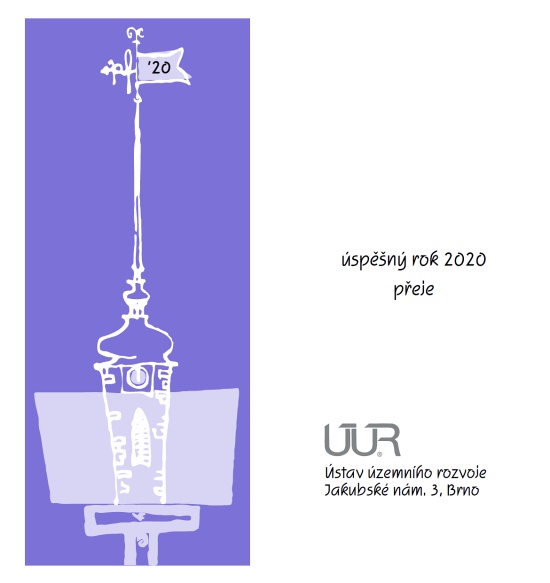
Dostálová: The Institute of Territorial Development should have its powers expanded
 |
The Institute of Territorial Development in Brno was established in 1994 and is an organizational unit of the state, created by the Ministry for Regional Development (MMR). It operates in the fields of spatial planning, regional policy, housing and housing policy, regional and municipal spatial development programs in the Czech Republic, and tourism.
"We are well aware that the law needs to take architectural policy into account. We even have the Institute of Territorial Development in Brno. However, it is necessary to expand this institute with further competencies. It is essential that it gathers and provides data so that we can make quality decisions in the given territory. It should also have a research component,” said Dostálová.
According to Dostálová, the data collected would provide a better overview, for example, of how many apartment buildings are missing in the given region. "For linear constructions, another criterion could be how land is valued and what the situation is with expropriation. Price maps for these linear constructions could also be a solution. Together with the Czech Chamber of Architects, we are trying to find an optimal solution that we would incorporate into the law. I consider it important to emphasize that no new office is being created. Its powers and competencies are just being expanded," added the minister.
Jan Kasl, Chairman of ČKA, who was the Mayor of Prague from 1998 to 2002, stated that the Institute of Territorial Development could be inspired by the Institute of Planning and Development of the Capital City of Prague. "It should also be a scientific research workplace. And that is a big ambition that the Ministry for Regional Development (MMR) should help fulfill. And let the law allow it to study data. Today we have a lot of data in the clouds, but we do not have any information from them; we cannot work with them. And let the institute remain in Brno. No pragocentrism," Kasl said.
According to him, the ČKA rather supports the proposed building law, as about half of the theses accepted by the chamber in 2017 when the original intention was announced have been fulfilled. "We perceive an utterly impossible situation that has arisen in construction. We see one problem that concerns spatial planning and the incomprehensible attitude of mayors, who have managed to ensure that the building authorities at the first instance will not be integrated into the state building administration," added Kasl.
In mid-January, MMR agreed with the Association of Towns and Municipalities that officials responsible for building approval at the municipal level would not be transferred to the new state model. Originally, 13,500 officials were to be transferred to the state, but this number is now about 7,000.
The government expects significant acceleration and simplification of building approvals from the new building law. According to World Bank data, the Czech Republic ranks 157th in the processing of building permits out of 190 countries compared. Approximately 4,500 fundamental comments have been made on the proposed legislative wording. Many of them overlap, so the actual number will be lower. Due to this, the government has extended the comment period by two months until the end of March.
The norm has many critics. Among the most common complaints is that it favors developers and does not protect public interests. According to some opponents, it is even unconstitutional. Dostálová has previously stated that she is willing to make compromises during the commenting process, but the goal of the law must not be violated. The government plans for it to come into effect at the beginning of next year. According to Dostálová, the effectiveness will gradually take effect, with the latest deadline being mid-2023.
The English translation is powered by AI tool. Switch to Czech to view the original text source.
0 comments
add comment










